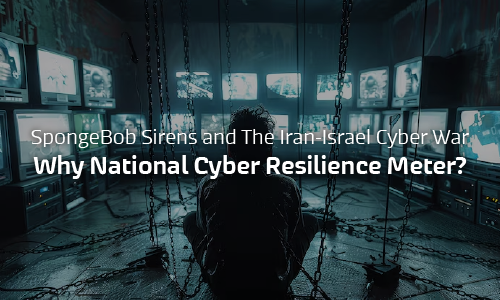
Summary: This article explores the recent escalation of cyber warfare between Iran and Israel, emphasizing the critical need for national cyber resilience. It highlights high-profile incidents such as the hijacking of Iran’s financial systems, phishing attacks on Israeli journalists, and the bizarre replacement of Israeli air raid sirens with the SpongeBob SquarePants theme song. These events demonstrate how cyberattacks can disrupt public infrastructure, undermine trust in institutions, and endanger civilian lives. The article argues that as digital threats grow in sophistication and reach, nations must invest in robust cybersecurity systems, public digital literacy, and international cooperation to defend against hybrid warfare in the digital age.
Introduction
Imagine this: instead of a blaring air raid siren warning citizens of incoming missiles, the theme song of SpongeBob SquarePants plays across the skies. As surreal as it sounds, this incident reportedly took place in Israel in mid-June 2025, when hackers allegedly hijacked the country's emergency alarm system. Behind the absurdity lies a very real and escalating cyber war between Iran and Israel, a digital conflict that highlights the crucial importance of strong national cyber defense.
The Digital Battlefield of Iran and Israel
For years, Iran and Israel have clashed not only on physical battlegrounds but also in cyberspace. Both nations are known to have advanced cyber capabilities, often targeting each other's critical systems. This digital confrontation, once covert and shadowy, became undeniably public in June 2025, when attacks intensified in parallel with military tensions on the ground.
Real-World Cyber Attacks
Several cyber incidents shook both nations:
- Crypto Heist in Iran: A hacker group believed to be affiliated with Israel reportedly infiltrated Iran's largest crypto exchange, Nobitex, stealing around $90 million in cryptocurrency. Instead of rerouting the funds for profit, the attackers sent the digital assets to inaccessible addresses, making the loss permanent.
- Bank Disruption: Just a day earlier, the same group allegedly crippled Iran's Bank Sepah, causing online systems to crash and freezing customer access to accounts and ATMs. This deeply affected public trust in Iran's financial infrastructure.
- Targeting Israeli Journalists: Iranian hackers, in turn, engaged in phishing campaigns against Israeli media figures. By impersonating officials or colleagues…












